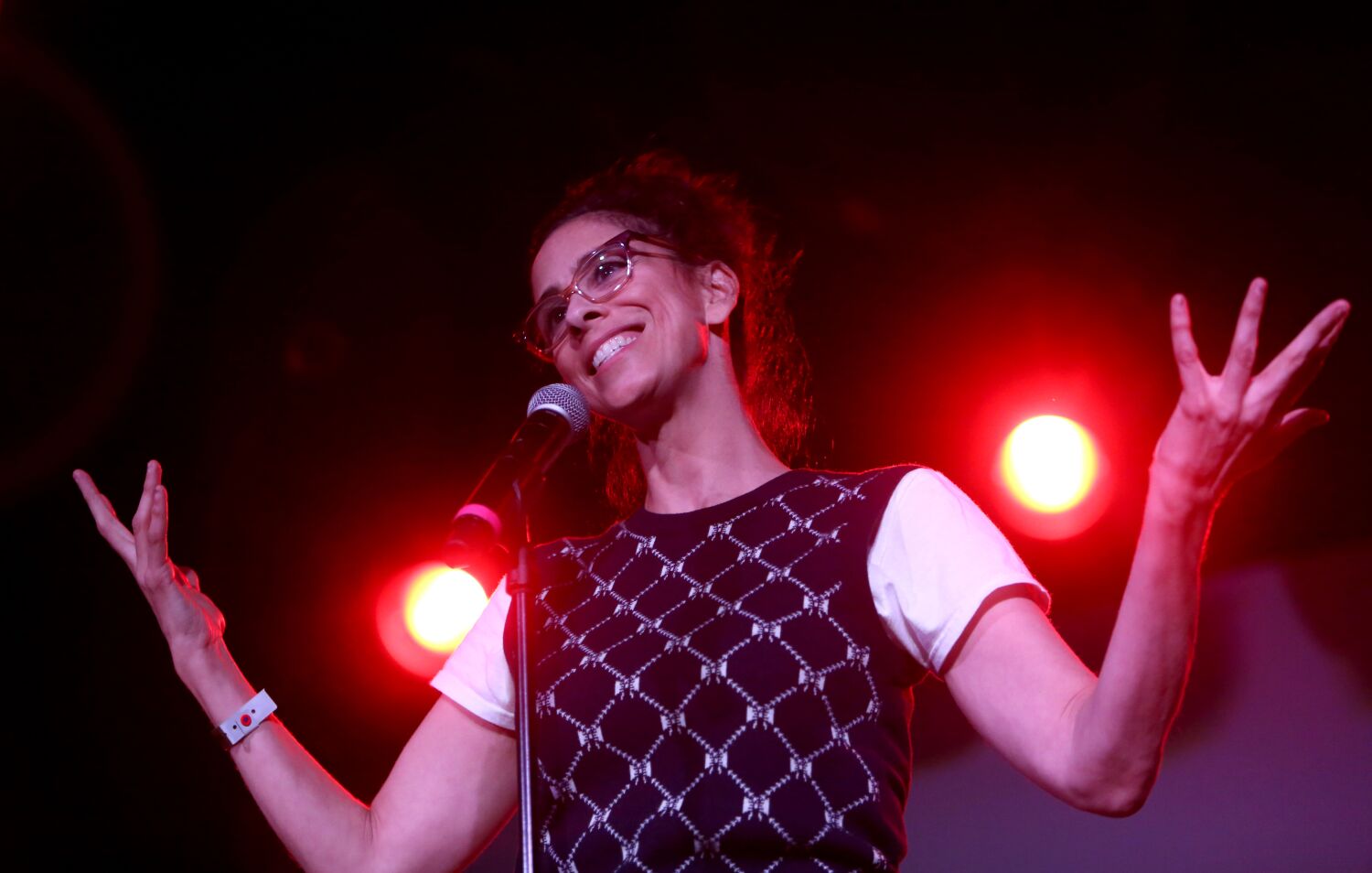Comedians laugh off AI’s effect on stand-up: ‘Like eating processed foods’

“I heard one AI thing where Tom Brady’s voice was doing stand-up about s— himself, and it was hilarious in a way that really concerned me,” recalls Rosebud Baker. “On the other hand, it makes all these specials with comedians crying at the end make a lot more sense.”
The Tom Brady stand-up that the “Saturday Night Live” writer refers to is a viral video called “It’s Too Easy!” generated by the “Dudesy” improv podcast, a series run on the backs of AI plus co-hosts Will Sasso and Chad Kultgen. The “Simulated Hour-Long Stand-Up Comedy Special” about the football star’s career was removed from platforms after Brady threatened a lawsuit in April.
The generative technology’s effects throughout the entertainment industry have remained a point of contention through the ongoing writers’ strike, with the Writers Guild of America requesting the Alliance of Motion Picture and Television Producers to regulate and in some cases ban AI use. The July 7 news that Sarah Silverman filed legal complaints against ChatGPT creator OpenAI and Facebook parent company Meta — saying that their tools copied her 2010 memoir “The Bedwetter: Stories of Courage, Redemption, and Pee” “without consent, without credit and without compensation” — forced the topic into the stand-up spotlight.
“I wrote into ChatGPT, ‘Write me a joke about cancel culture,’” touring headliner Brad Williams offers. “It responded, ‘My toaster got canceled for making the toast too Black.’ So for now, the humans’ job is safe.”
Comics tend to skew skeptical that AI can replicate attributes including timing and presence. Generally they believe that all AI currently seems able to offer is lazy and outright basic joke-writing.
“Writing jokes will be one the very last tasks AI will be able to do convincingly and effectively,” predicts “Conan” vet Matthew Broussard. “Meaning, against all logic, I chose the career with the most stability.”
“The only thing AI in comedy will be able to do is put dads out of business,” agrees Sarah Fatemi, referring to the technology’s dad-joke quality. The comedian and activist continues: “It definitely goes out of its way to be PC. Which makes sense, coming from the fact that it’s coming from a PC. At least that’s one joke writer that can’t be canceled.”
Most enthusiasts point to applications beyond simply generating toothless punchlines. At spring 2023’s Bombay Beach Biennale, the annual ultra-independent art festival, sculptor and painter William Attaway came face to camera with a computer that scanned and roasted attendees. Reactions were uploaded for sharing. He recalled the language “can get dirty, like, ‘You’re a horny m—!’” In New York City, a monthly “multimedia Web3 comedy-variety show” in New York City called “ComedyBytes” features the “world’s first AI vs. human comedy roast battle.”
Audio-visually, screenwriter and Comedy Central roaster Greg Roque cautions, “Perhaps I am a naïve optimist, but I’m excited about the new possibilities AI has to offer comedy, especially the prevalent absurdist comedy you find on the Internet. I don’t see AI as the downfall of ‘true’ artistry, as some of my peers do. AI will become another tool for artists to expand their voices and creativity. For example, as someone with a disability, it’s hard to draw some visual jokes. However, thanks to AI-generation art, after his famous antisemitic episode, I was able to create an image of Kanye West at the Nuremberg trials.”
“Skilled comedians craft material that brings the audience to them, while AI panders to the masses,” said John Poveromo, host of the “Dystopia Tonight” podcast. “In the quest to cater to mass appeal, AI may inadvertently contribute to a deeper homogenization of comedic content.” Since AI can’t create on the spot but only glean from information that already exists, he notes, “In comedy we have that in human form: We call them hacks. And in the same way a skilled comic can blow a hack off the stage, I have no doubt in a live setting they would do the same to anything AI can generate. However, as we’ve already seen when it comes to TikTok, Reels, etc., views don’t always equal talent. It doesn’t matter how good you are at something if no one is listening and it doesn’t matter how bad you are if everyone is. So when the audience is sitting at home, mindlessly scrolling for content on their phone, it becomes an uneven playing field.”
Globetrotter Tom Rhodes knows much of stand-up relies on personal perspective. Not to mention heartfelt impressions. “AI terrifies me on many levels, but I don’t worry about it replacing comedy,” he says. “Nothing compares to a live performance where anything can happen. And AI could never imitate the ingenious quirky witticisms of my mother and the way she looks at the world.”
Even as next month’s Edinburgh Festival Fringe prepares to feature AI-assisted fare including “Artificial Intelligence Improvisation,” “3rd Rock From the Pun,” “Distant Memories of the Near Future” and “AI Jesus,” longtime comedy gamechangers continue to believe leaning on AI will go the way of relying on racist or sexist tropes for laughs.
“I don’t think AI will have a long-lasting impression in the world of comedy,” said Ahmed Ahmed, winner of Edinburgh’s inaugural Richard Pryor Award. “AI in comedy is like eating processed foods. It’s just simply not good for you, and no one wants to digest computer-generated humor. It’s not authentic and lacks timing, which is what comedy is all about.”
For all the latest Entertainment News Click Here
For the latest news and updates, follow us on Google News.
